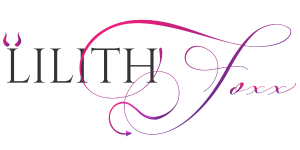Sexual wellness is finally getting its moment in the spotlight, and with that rise has come a surge of curiosity about sexuality coaching. Maybe you have seen the term on social media, or a friend raved about their progress after a few sessions. This guide unpacks exactly what sexuality coaching is, clears up the biggest misconceptions, and shows how working with a coach can transform your intimate life—whether you are partnered, single, or somewhere in between.
What is Sexuality Coaching?
In the simplest terms, sexuality coaching is a goal-oriented, collaborative service that helps clients explore, understand, and enhance their sexual lives. Think of it as personal training for intimacy. Instead of counting reps, you and your coach set sexual wellness goals—better communication, deeper desire, pain-free pleasure—and work through tailored exercises, education, and reflection to achieve them.
Key features of sexuality coaching:
- Education first. A coach fills in the anatomy, physiology, and pleasure gaps formal schooling rarely covers.
- Action plans. You leave sessions with concrete steps, not just theory.
- Future focus. While past experiences matter, the emphasis is on where you want to go and how to get there.
- Holistic lens. Sessions often weave in mental health, physical well-being, relationship dynamics, and cultural or identity factors that influence desire.
Sessions can happen in-person, over video, or even by phone. Most coaches offer follow-up emails or worksheets so progress continues between meetings.
What Sexuality Coaching Is Not
Clearing illusions is half the battle. Here are three myths that stubbornly hang around:
1. Sexuality Coaching Is Not Sex Therapy
Sex therapy must be provided by a licensed mental-health professional and frequently dives deep into diagnosis—anxiety disorders, trauma processing, or hormone-related dysfunctions. Sexuality coaching is more like life coaching with a sexual focus. It tackles skills, knowledge gaps, and mindset shifts rather than treating clinical conditions.
2. It Is Not Only for Couples
Singles, people exploring non-monogamy, asexual clients seeking clarity—everyone can benefit. Coaching tailors to the individual’s current stage and goals, no partnership required.
3. Coaches Do Not Engage in Sexual Activity with Clients
Ethical standards prohibit erotic contact. A subset of coaches do somatic, clothes-on body work, but that is always non-sexual touch designed for sensory awareness. The core of sexuality coaching remains conversation, education, and guided exercises you complete in your own time.
The Tangible Benefits of Sexuality Coaching
Enhanced Sexual Communication
Many of us were never taught to name or negotiate our desires. Coaching offers scripts, role-play, and feedback so you can express boundaries and fantasies with clarity. Solid communication often leads to fewer misunderstandings and more enthusiastic “Yes, please.”
Heightened Sexual Satisfaction
By identifying pleasure zones, troubleshooting discomfort, or building arousal rituals, clients often report significant boosts in orgasm frequency and overall sexual happiness.
Personal Growth and Self-Esteem
Sexuality sits at the intersection of body image, cultural upbringing, and identity. When you unlock comfort in that arena, confidence ripples into work, friendships, and creative pursuits.
Support for Life Transitions
Menopause, post-partum recovery, erectile changes, and disability shifts can upend intimacy. Sexuality coaching provides strategies and resources to adapt gracefully.
Trauma-Aware Guidance
While not trauma therapy, many coaches are trained in trauma-informed methods. They help you identify triggers and build nervous-system safety tools before stepping into erotic exploration.
Who Can Benefit Most?
- Long-term couples in a rut looking to reignite spark
- New parents balancing exhaustion with desire
- Singles navigating dating apps and wanting to vet partners respectfully
- Survivors of purity culture reclaiming body autonomy
- LGBTQIA+ clients seeking affirming guidance free from heteronormative scripts
- People with chronic pain or disability adapting positions and pacing for comfort
- Polyamorous or kinky communities integrating consent and negotiation practices
If any of these resonate, sexuality coaching could be the missing puzzle piece.
What to Expect in a Session
- Intake & goal setting. You discuss history, current challenges, and desired outcomes.
- Education segment. The coach introduces information—anatomy, toys, lubricants, communication frameworks—tailored to your needs.
- Practice or homework. You might leave with a yes-no-maybe list, mirror pleasure exercises, or a scripted boundary statement to test with your partner.
- Accountability check-ins. At the next meeting you review progress, troubleshoot snags, and refine goals.
Sessions typically last 60–90 minutes. Most clients see change within four to six meetings, though some enjoy ongoing mentorship.
Choosing the Right Sexuality Coach
- Credentials. Look for certifications from reputable bodies like AASECT or ISSWSH.
- Specializations. Some focus on kink, others on menopause or LGBTQIA+ issues—match their niche to your need.
- Ethics and boundaries. A coach should provide a clear consent policy, confidentiality agreement, and fee structure.
- Chemistry. Even with stellar credentials, rapport matters. Most coaches offer a short discovery call—trust your gut in that conversation.
Frequently Asked Questions about Sexuality Coaching
Is it covered by insurance?
Coaching is usually an out-of-pocket service. However, flexible-spending accounts and HSAs sometimes reimburse sessions—check your plan.
How private are sessions?
Reputable coaches follow strict confidentiality guidelines comparable to therapy, though legal protections vary by region.
What if my partner is hesitant?
Invite them to a joint consultation. Many skeptics soften after hearing the coach’s collaborative, shame-free approach.
Can coaching fix low desire?
It can uncover contributing factors (stress, mismatched libidos, medication side-effects) and craft actionable plans. For hormonal or medical concerns, a coach may refer you to a healthcare provider.
Key Takeaways
- Sexuality coaching centers on education, practice, and forward momentum—no clinical diagnosis required.
- Myths (like coaches having sex with clients) distract from the real value: clear goals, better communication, and tailored pleasure strategies.
- Anyone—from new lovers to long-married partners—can harness coaching to enrich intimacy and self-confidence.
- Choosing a coach involves credentials, specialization, and gut-level comfort.
- Sessions blend learning with action so you leave with tools, not guesswork.
Next Steps
- Curious about consent language? Read Boundary Scripts You Can Actually Say for practical phrasing.
- Need sensory-friendly bedroom tips? Check Sensory Friendly Impact Play to pair physical comfort with emotional safety.
- Ready to dive in? Book a coaching action plan session and explore how sexuality coaching can fit your goals.



